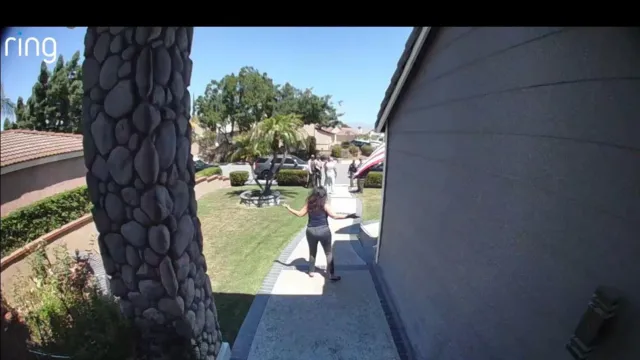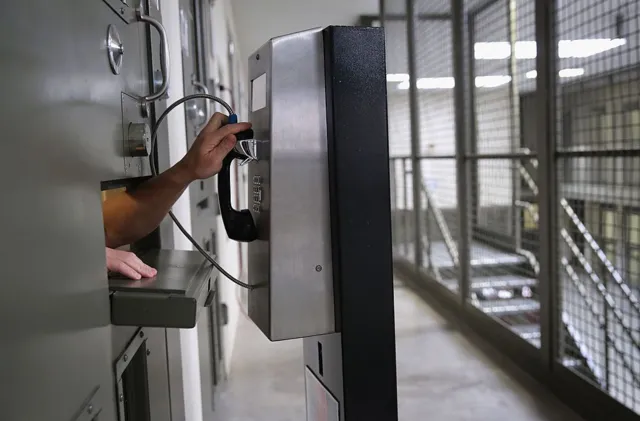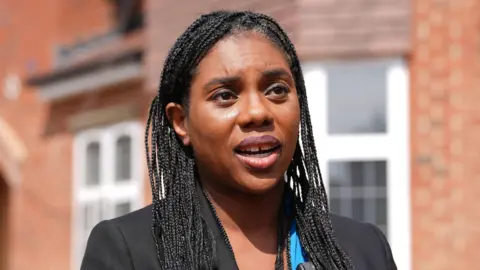Detained Mom and Staunch Trump Supporter Maintains Faith in Mass Deportation Amidst Personal Ordeal
Detained Mom and Staunch Trump Supporter Maintains Faith in Mass Deportation Amidst Personal Ordeal
In a striking display of political conviction, Arpineh Masihi, currently detained as an undocumented immigrant, remains a fervent supporter of former President Donald Trump and his controversial mass deportation policies. Despite her own predicament, Masihi expressed her belief that Trump’s approach is “the right thing” for the nation, stating, “lots of these people don’t deserve to be here.” Her unwavering loyalty is a testament to her deeply held views, even as she faces the realities of immigration enforcement.

Masihi’s sentiment is echoed by her family, who live in Diamond Bar, a prosperous suburb of Los Angeles. A Trump flag prominently flies at their home, and “MAGA” hats are a visible presence, reflecting a strong alignment with Trump’s political platform. The family’s home life, filled with the energy of three dogs and four young children, has been profoundly disrupted by Masihi’s detention. Her husband, Arthur Sahakyan, described the situation as “Our home is broken,” highlighting the emotional toll the detention has taken.
A Past Conviction and a Second Chance
Arpineh Masihi, 39, represents a complex narrative of immigration in America, a story often characterized by second chances. Having lived in the United States since she was three years old, Masihi has built a life in the country. However, her past includes a 2008 conviction for burglary and grand theft, for which she served two years in prison. Following her release, an immigration judge revoked her Green Card. Fortunately for Masihi, her status as a Christian Armenian Iranian offered a pathway to remain in the country, a decision her husband, Arthur, emphasizes is critical due to potential dangers she might face if deported to Iran.
“We are Christians. She can’t go back, there’s no way,” Arthur stated, his voice reflecting deep concern for his wife’s safety. He fears for her life should she be forcibly returned to her native country. The family’s home, a hub of activity with their young children and pets, is now overshadowed by anxiety and worry for Arpineh.

Since her release from prison, Arpineh has diligently worked to rebuild her life. She established a successful business and raised a family within Southern California’s vibrant Iranian-American community, often referred to as “Tehrangeles,” which boasts the largest concentration of Iranians outside of Iran. Despite this success, recent immigration raids have cast a shadow over the community, with Masihi being among those detained. While many apprehended individuals are from Mexico, the ongoing operations have led to the arrest of immigrants from diverse global backgrounds.
Trump’s election campaign prominently featured a promise to implement “the largest deportation program of criminals in history.” Masihi and her family continue to place their faith in this vision, believing that only individuals posing a significant threat will ultimately face deportation. Arthur expressed his perspective on the current immigration policies, stating, “I don’t blame Trump, I blame Biden. It’s his doing for open borders, but I believe in the system and all the good people will be released and the ones that are bad will be sent back.”
While many apprehended by immigration authorities lack criminal records, Arpineh’s past felony conviction makes her a potential target for removal. ICE did not provide a comment on Arpineh’s specific case when contacted. Arthur admitted he wasn’t privy to the details of his wife’s past offense, as they had only briefly discussed it before their marriage, and he had since considered it a youthful indiscretion. His focus remains on her positive contributions over the past 17 years, including her volunteer work with the local school district and her acts of kindness towards firefighters and police officers.
The Unexpected Encounter with ICE
The routine of family breakfast was shattered for Arpineh and Arthur on June 30th when Immigration and Customs Enforcement (ICE) agents contacted Arpineh, an event they initially dismissed as a prank. Within thirty minutes, however, enforcement officers arrived at their residence. Despite widespread “Know Your Rights” campaigns in Los Angeles County advising immigrants not to open their doors to enforcement agents, Arpineh and Arthur chose to engage with the officers outside. Arpineh presented her documentation, reminding the agents that a judge had previously permitted her to remain in the U.S. due to the circumstances in Iran, provided she avoided further legal issues and maintained regular check-ins with immigration officials, her last being in April.
Arthur even extended an invitation for the agents to enter their home, an offer they declined. The agents informed Arpineh that her circumstances had changed and presented a warrant for her arrest. They granted her a brief moment to bid farewell to her children—aged 14, 11, 10, and 4—warning her that evasion would only lead to eventual apprehension, potentially in a more forceful manner.
“They told us no matter what we’re going to catch you – maybe if you’re driving on the street with your kids – so we thought, what we’d been seeing on the news: flash bombs, cornering cars,” Arthur recounted, emphasizing their desire to avoid a traumatic public arrest scenario for Arpineh, especially in front of their children. “She came and kissed the kids goodbye,” he recalled, “She came outside like a champion and said, ‘Here I am’.”
Arthur made a plea to the immigration officers not to handcuff his wife, but they indicated it was unavoidable. They agreed, however, to do so on the far side of their vehicle, shielding their children from witnessing the sight of their mother in handcuffs.
Arpineh was subsequently transported to a federal building in downtown Los Angeles, a facility utilized by ICE for processing individuals apprehended during ongoing raids across the region. This location had become a focal point for significant anti-ICE protests in Los Angeles. Masihi described the conditions at the building as dehumanizing, stating that those held there “were treated like animals.” She recounted being confined in a freezing, brightly lit room with 28 other women for three days, surviving on minimal sustenance and huddling together for warmth while sleeping on the floor.

Awaiting a Favorable Outcome
Arpineh’s ability to speak Armenian, Spanish, and English proved invaluable, enabling her to connect with and support other women during her detention. Three days later, she was transferred to the Adelanto ICE detention center, a privately operated facility in the Mojave Desert known for its stringent, prison-like conditions. Despite these challenges, Arpineh finds Adelanto an improvement over her initial experience, noting the provision of three meals daily, access to showers, and a bed. While acknowledging reports of difficulties in accessing medical care, she remains hopeful due to her youth and good health.
“But it’s still very challenging,” she admitted. Both Arpineh and Arthur maintain their faith in the Trump administration’s approach and are optimistic about her eventual release, with Arpineh stating, “I’m not deportable to any country.” However, past instances, such as the deportation of Iranian Christians to Panama instead of Iran in February, highlight the unpredictable nature of these cases.
Arpineh continues to hold onto hope for a reprieve, though she confesses to moments of discouragement. She expresses a deep sense of belonging and Americanness, despite her undocumented status. The couple maintains regular contact, with Arpineh calling her husband hourly to share updates on her legal case, though significant developments have yet to occur. While her older children grasp the gravity of the situation, her youngest daughter, aged four, continually asks when her mother will return home.
All four of the Masihi children are U.S. citizens, born and raised in California. The couple is hopeful that this fact will be a significant consideration in the decisions regarding Arpineh’s future. “I have four citizen children. I own a business. I own a property. I own cars,” Arpineh asserted. “I haven’t done anything wrong in so many years.” Her words underscore a profound connection to the life she has built and her perceived contributions to American society.



Post Comment